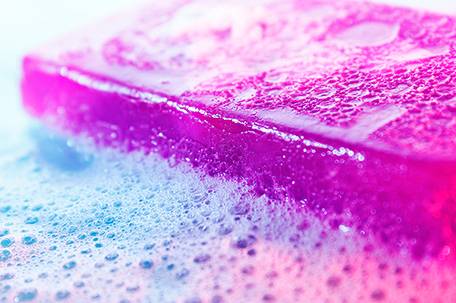
WASHINGTON — After more than 40 years of study, the federal government said Monday it has no evidence that the anti-bacterial chemicals used in countless common soaps and washes help prevent the spread of germs, and it is reviewing research suggesting they may pose health risks.
Regulators at the Food and Drug Administration said they are revisiting the safety of chemicals such as triclosan in light of recent studies that suggest the substances can interfere with hormone levels and spur the growth of drug-resistant bacteria.
The government’s preliminary ruling lends new support to outside researchers who have long argued that the chemicals are, at best, ineffective and at worst, a threat to public health.
“The FDA is finally making a judgment call here and asking industry to show us that these products are better than soap and water, and the data don’t substantiate that,” said Stuart Levy of Tufts University School of Medicine.
Under a proposed rule released Monday, the agency will require manufacturers to prove that anti-bacterial soaps and body washes are safe and more effective than plain soap and water. Products that are not shown to be safe and effective by late 2016 would have to be reformulated, relabeled or removed from the market.
“I suspect there are a lot of consumers who assume that by using an anti-bacterial soap product they are protecting themselves from illness, protecting their families,” said Sandra Kweder, deputy director in the FDA’s drug center. “But we don’t have any evidence that that is really the case over simple soap and water.”
A spokesman for the cleaning product industry said the FDA already has “a wealth of data” showing the benefits of its products.
An FDA analysis estimates it will cost companies $112.2 million to $368.8 million to comply with the new regulations, including reformulating some products and removing marketing claims from others.
The rule does not apply to hand sanitizers, most of which use alcohol rather than anti-bacterial chemicals.
The agency will accept data from companies and researchers for one year before beginning to finalize the rule.
The proposal comes more than 40 years after the FDA began evaluating triclosan, triclocarban and similar ingredients. Ultimately, the government only agreed to publish its findings after a three-year legal battle with the Natural Resources Defense Council, an environmental group that accused the FDA of delaying action on potentially dangerous chemicals. Triclosan is found in an estimated 75 percent of anti-bacterial liquid soaps and body washes sold in the U.S., including some brands of Dial from Henkel AG & Co., one of the nation’s largest soap makers.
More than 93 percent of bar soaps also contain triclocarban or triclosan, according to the FDA.
While the rule only applies to personal hygiene products, it has implications for a broader $1 billion industry that includes thousands of anti-bacterial products, including kitchen knives, toys, pacifiers and toothpaste. Over the last 20 years, companies have added triclosan and other cleaners to thousands of household products, touting their germ-killing benefits.
The FDA was tasked with confirming those benefits in 1972, as part of a law designed to set guidelines for dozens of common anti-bacterial cleaners. But the guidelines got bogged down in years of regulatory delays and missed deadlines. The agency published a preliminary draft of its findings in 1978, but never finalized the results until Monday.
Most of the research surrounding triclosan’s safety involves laboratory animals, including studies in rats that showed changes in testosterone, estrogen and thyroid hormones. Some scientists worry that such changes in humans could raise the risk of infertility, early puberty and even cancer.
FDA scientists stressed Monday that such studies are not necessarily applicable to humans, but the agency is reviewing their implications.
On a conference call with journalists, Kweder noted that the government’s National Toxicology Program is already studying whether daily skin exposure to hormone-altering chemicals could lead to cancer.
Other experts are concerned that routine use of anti-bacterial chemicals such as triclosan contributes to a surge in drug-resistant germs, or superbugs, that render antibiotics ineffective.
In March 2010, the European Union banned the chemical from all products that come into contact with food, such as containers and silverware.
A spokesman for the American Cleaning Institute, a soap and cleaning product trade organization, said the group will submit new data to regulators, including studies showing that company products do not lead to antibiotic resistance.
“We are perplexed that the agency would suggest there is no evidence that anti-bacterial soaps are beneficial,” said Brian Sansoni. “Our industry sent the FDA in-depth data in 2008 showing that anti-bacterial soaps are more effective in killing germs when compared with non-anti-bacterial soaps.”
The group represents manufacturers including Henkel, Unilever, Colgate-Palmolive Co. and Dow Chemical Co.















Leave a Comment